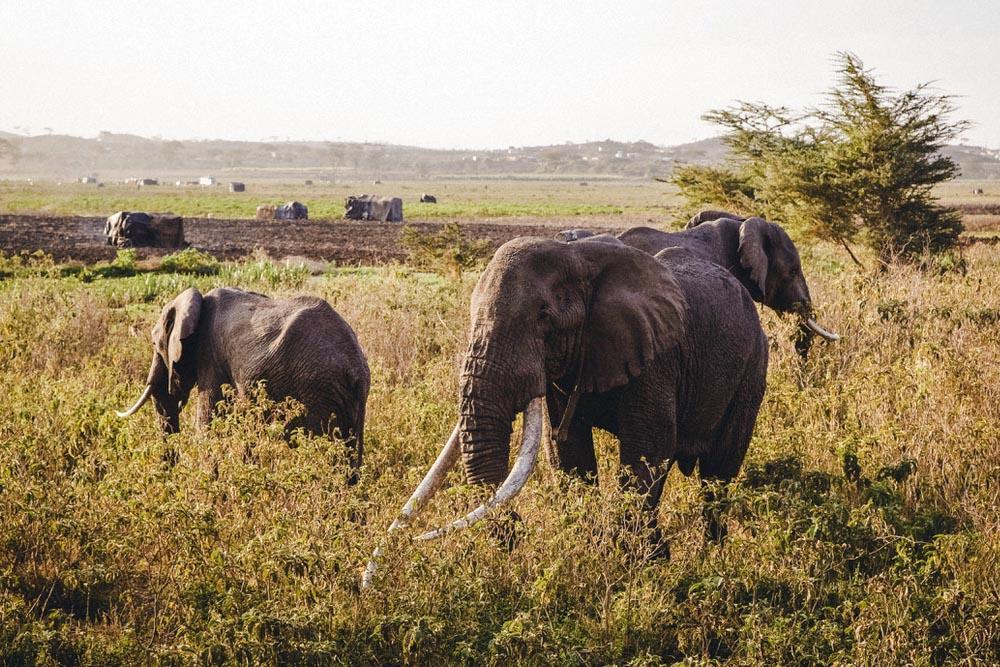
The end of the dry season is always a tense time for both people and wildlife, everything is in short supply, which manifests itself in many different ways. Hungry wildlife push the boundaries leaving safe areas in search of fodder, and worse, the irrigation fed tomato farms become irresistible. This inevitably leads to conflict. Bushmeat poaching also peaks this period, mainly driven by lack of economic returns in agriculture and therefore trade in bushmeat increases. Conversely, it’s a time of plenty for predators as prey species and livestock are weak, roaming further in search of pasture. In this process we have seen depredation of livestock more than double.
This is the first season that the new 50 km elephant exclusion fence has been put to the test, and it has worked better than all our expectation: the farming areas it’s protecting hardly had any incursions by wildlife, reducing recorded raiding in this area by over 90%, saving farmers thousands of dollars and saving many elephant from being speared. So this has been a great success and spurred us forward into Phase 2 of the fence, I need to thank all of you who have contributed, as we now have sufficient funds to extend the line another 58 kilometres, which we hope will begin in December.
Our rangers have been busy as you will see from the report: Big Life rangers arrested 96 suspects in 45 incidents of illegal activity. Of these, 54 suspects were arrested in 29 poaching-related incidents, including 26 suspected trophy dealers. Rangers recovered 338 kg of ivory from arrests. The number that jumps out at me here is the huge increase of arrests related to ivory dealers. This has largely been driven by the recent growth and training of our informer network, with arrests happening sometimes hundreds of kilometres away from our core area. It’s a huge achievement and congratulations to Head of Security, Craig Millar, and his team for this success. At the same time, it’s a stark reminder that the ivory trade is still alive and well, despite a dip in the black market price of ivory. It also underlines the fact that while ivory has any value, the killing will continue.
Supporting education has always been a priority for Big Life and our Wildlife Scholarship Program is growing: we now have 208 kids in school through this program. However, I always find one of the most challenging aspects of my job is the sifting through the of applications for these scholarships. Its heart-wrenching to meet families who have sometimes sold their last cow to educate a son or daughter, only to have them sent away from school for falling behind in school fee payments. Once these kids are off the education ladder, there is little hope in getting them back on, and they come to us as a last and desperate resort. Support for this program would be much appreciated as it literally changes lives.
As always I need to thank you all again for your incredible support.
Richard Bonham,
Director of Operations
FIND THE FULL Q2 REPORT HERE
